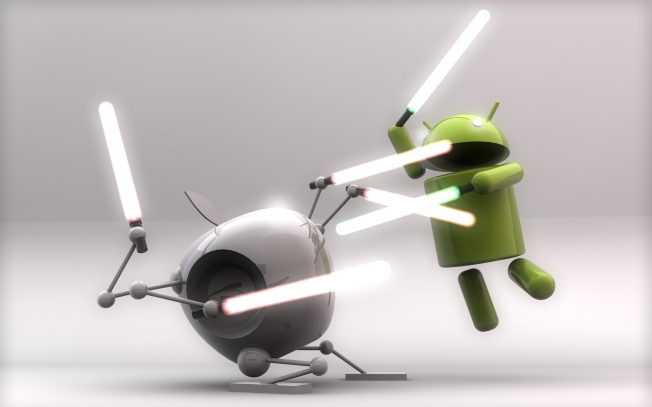One of the most annoying traits of many technology fans is their conviction that their favorite technology platform should by all rights crush rival operating systems and become the dominant OS in the smartphone or tablet market. In their narrow-minded little worlds, all rival technologies should go the way of webOS so that everyone can bask in might of their favorite operating system, thus proving that their personal preference for a particular type of technology was right all along.
The big reason I find this mentality borderline repulsive is because most of us are old enough to remember the last time an operating system definitively won the market place and effectively set up a monopoly for itself that it’s taken several years to chip away at. Yes I’m referring to the late 1990s when Microsoft reigned supreme over the computing world and Apple and Linux were both afterthoughts for most users. The result of all this was a company that grew arrogant and complacent and produced such wonders as Clippy and Vista, all the while thinking that it didn’t matter how many mistakes it made because users had nowhere else to go.
The mobile device market, much to my pleasant surprise, has been much more diverse and competitive. Android hasn’t gone the way of other free-to-use platforms in the past because of the brand power of Google’s web services. iOS has been a trailblazing platform that has singlehandedly created mass markets for tablets and smartphones. Windows Phone is looking to make a name for itself as the best operating system to compliment its Xbox One gaming platform and BlackBerry remains the top option for users who value security and messaging capabilities above all else.
What’s even better about this diversity of operating systems is that it’s pushing all competitors in the market to up their games. It used to be that the iPhone was the obvious choice for the world’s best smartphone but now Samsung and HTC have both worked their way into the discussion by raising the bar for display quality with the Galaxy S4 and build quality with the HTC One.
“It would please me if it turned out that the mobile-platform wars continued on indefinitely, with both iOS and Android — and Windows Phone, and BlackBerry 10, and operating systems yet to be invented — remaining viable, evolving and exciting,” Time’s Harry McCracken smartly writes. “When there are multiple attractive options, and nobody feels forced into using a product unwillingly, consumers win. That’s the state of affairs right now. And isn’t it the only victory that really matters?”
When looked at from this perspective, the whole obsession with rooting for one side to “win” in the mobile race is a little like Beatles and Stones fans arguing over which band would sell more records in a given year: In the end, who really cares as long as their fierce is pushing them to release albums as good as Revolver or Beggar’s Banquet?






